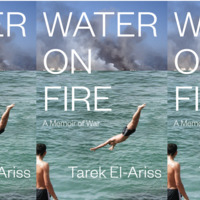Tarek El-Ariss
Dartmouth College, Middle Eastern Studies, Faculty Member
Focusing on the body as a site of rupture and signification, this book shifts the paradigm for the study of modernity in the Arab context from questions of representation, translation, and cultural exchange to an engagement with a... more
Focusing on the body as a site of rupture and signification, this book shifts the paradigm for the study of modernity in the Arab context from questions of representation, translation, and cultural exchange to an engagement with a genealogy of symptoms and affects. Trials of Arab Modernity traces a series of experiences and encounters arising from leaving home, aversion to food, disorientation, anxiety attacks, and physical collapse embodied in travelogues, novels, poetic fragments, and anecdotes from the nineteenth-century to the present. Tarek El-Ariss thus reframes Arab modernity [ḥadātha] as a somatic condition, which takes shape through accidents and events [aḥdāth] emerging in and between Europe and the Arab world, the literary text and political discourse. This study challenges the prevalent conceptualizations of modernity, both those that treat it as a Western ideological project imposed by colonialism, and others that understand it as a universal narrative of progress and innovation. Instead, El-Ariss offers a close reading of the simultaneous performances and contestations—or trials—of modernity staged in works by authors such as Rifa‘a al-Tahtawi, Ahmad Faris al-Shidyaq, Tayeb Salih, Hanan al-Shaykh, Hamdi Abu Golayyel, and Ahmad Alaidy. In dialogue with affect theory, deconstruction, and psychoanalysis, this book reveals the unfolding of these trials as a violent and ongoing confrontation with and within modernity, decentering yet also redefining and producing it. El-Ariss’s theoretical and comparative approach offers a new configuration of Arab modernity at the intersection of historical, cultural, and aesthetic frameworks. The first study of its kind to bridge the gap between Nahda or the so-called Arab project of Enlightenment, or Renaissance, and postcolonial and postmodern fiction, this work is an invaluable resource for students and scholars of Middle Eastern and Arabic Studies, Comparative Literature, Gender and Sexuality Studies, Islamic Studies, Intellectual History, and Anthropology.
